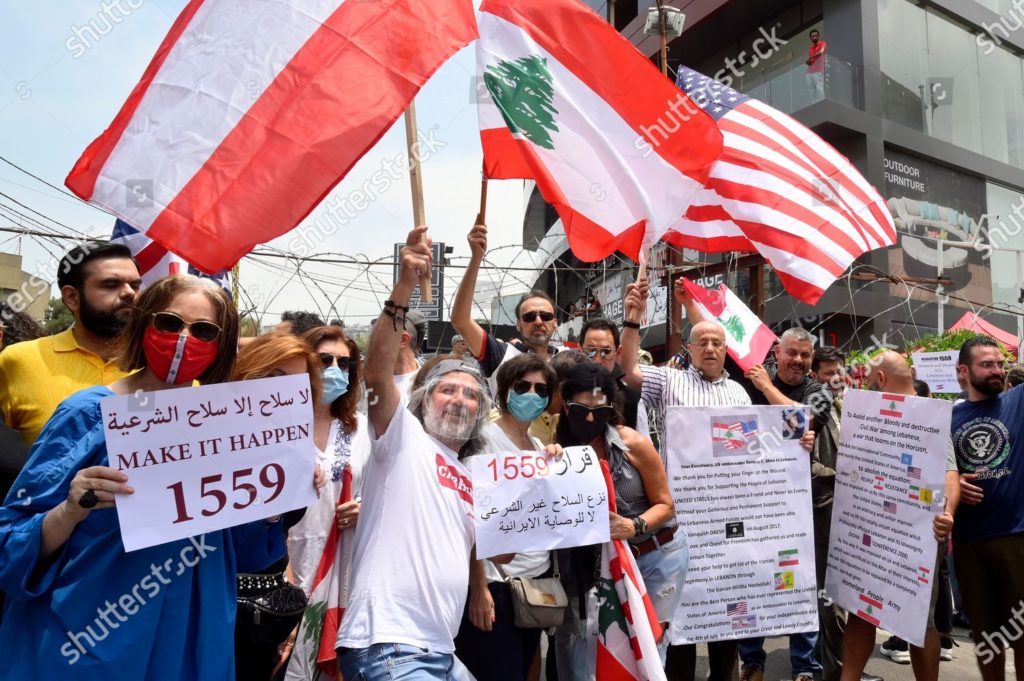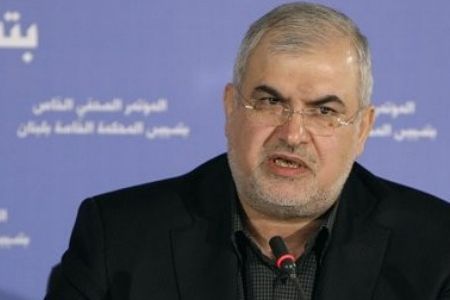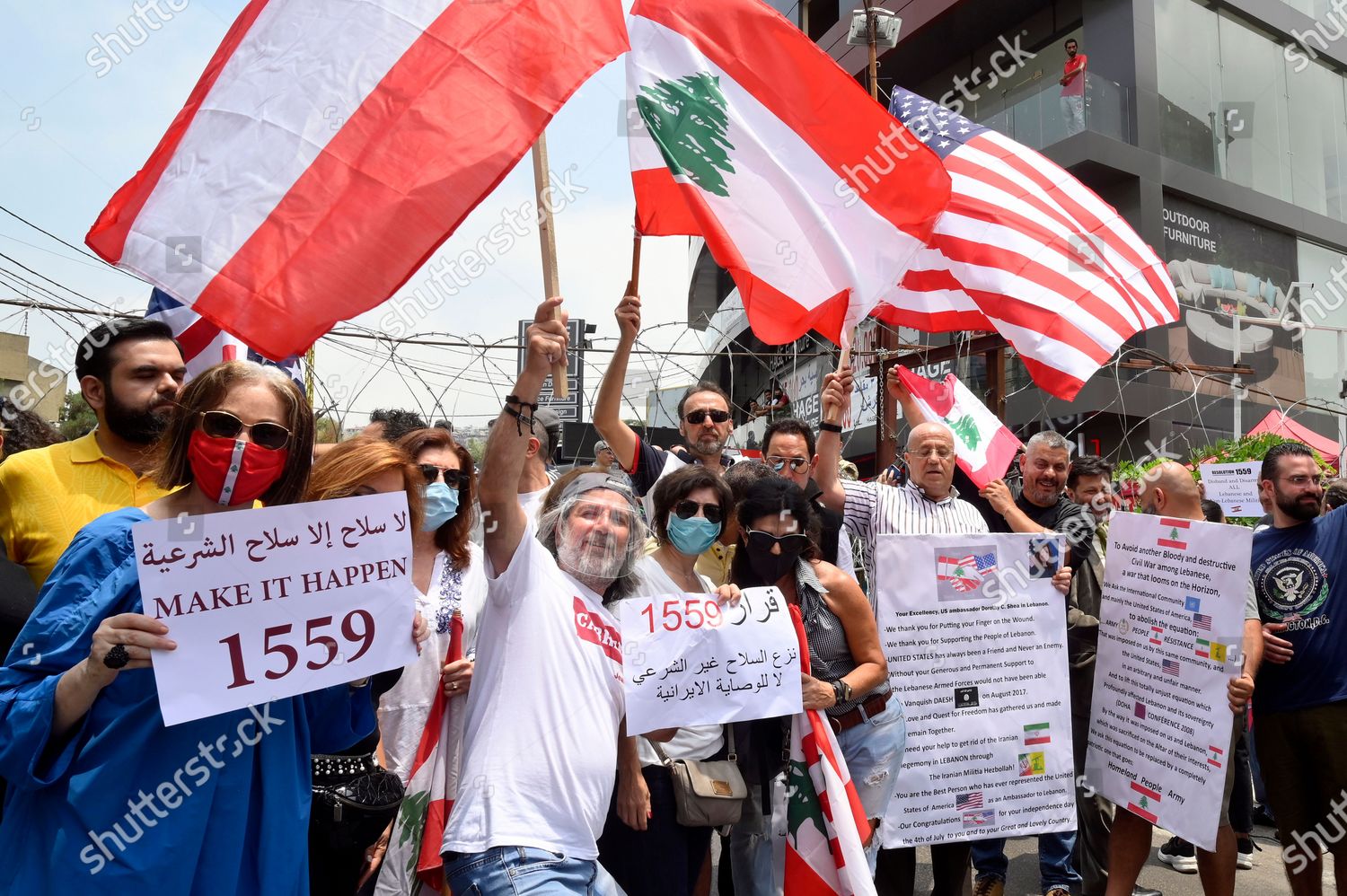Whereas the US sees Hezbollah as strictly a terrorist organization that is hindering much-needed government reform, France has shown a willingness to work with the political arm of the Iran-backed group, but wants the group to be prove it is Lebanese

BEIRUT, Lebanon (AFP) — When it comes to Lebanon, the US and France have similar outlooks, but one major point of difference involves the Hezbollah movement — shunned by Washington but tolerated by a pragmatic Parisian leadership.
While the United States seeks to isolate and curb the influence of the Iran-backed group it has designated a terrorist organization and punished with sanctions, France sees it as a key political actor whose cooperation is needed to lift Lebanon out of crisis.
Lebanon’s government stepped down last month amid popular anger over a massive blast at Beirut’s port on August 4 that killed 191 people, wounded thousands and ravaged large parts of the capital.
Both Western powers have agreed Lebanon needs a cabinet different from its predecessors to tackle urgent reforms, but all consensus seems to end there.
“France’s approach tends to be more realistic,” analyst Karim Bitar told AFP.
“France views Lebanon as it is, while the [US President Donald] Trump administration tends to view Lebanon as it would like it to be.”
The US view is that Hezbollah — the only group not to have disarmed after the 1975-1990 civil war — holds excessive influence in Lebanon, “which needs to be contained,” Bitar said.
But Paris recognizes “Hezbollah in Lebanon is a major political actor, that it has a wide captive constituency in Lebanon’s Shiite community, that it is here to stay,” he added.
The United States has been following closely as French President Emmanuel Macron twice visited Lebanon since August 4 to press for political change and reforms to unlock financial aid.
During his last trip, the French leader differentiated between two facets of Hezbollah — one “terrorist,” and the other, a political party “elected by the people” to parliament and allied with the Lebanese president’s party that could not be excluded from talks.
The aligns with official EU policy, which designates only the group’s military wing as a terror organization.
Hezbollah chief Hassan Nasrallah has been notably positive about Macron’s visits, not labeling them as “foreign interference” as he might have done for such a move by the US.
The Shiite movement’s parliamentary bloc leader, Mohammad Raad, was among lawmakers who met Macron before he said all sides had agreed to form a new government within a fortnight.
France, which has outlined a roadmap for reforms for the next government, “wants to maintain a channel of dialogue with Hezbollah in order to prevent the destabilization of Lebanon,” Bitar said.
Paris views itself as “an honest broker” to do this in a time when tensions are at a peak between Washington and Tehran.
Observers say France is one of the only Western powers to have maintained direct contact with Hezbollah, pointing to the role of the current French ambassador, who formerly held the same post in Tehran.
“There has always been direct contact between Paris and Hezbollah,” an Arab diplomat in Beirut told AFP.
And as Washington is caught up in preparing for the US presidential polls, it appears to be giving France some leeway on Lebanon.
“The Americans have set as a condition that Hezbollah not take part in the (next) government, but they could turn a blind eye to them remaining if there were a deal and reforms,” the diplomat said.
Hezbollah cannot be trusted
US Assistant Secretary for Near Eastern Affairs David Schenker, also visiting Lebanon last week, told Lebanese newspaper An-Nahar that the US appreciated the French initiative, but differed on a few details, including that Hezbollah was not a legitimate political organization but a “terrorist” group.
He did not meet with key political figures, instead seeing army chief Joseph Aoun, lawmakers who resigned after the port blast, civil society activists and Shiite figures opposed to Hezbollah.
One such Shiite figure told AFP that Schenker said during their meeting that Hezbollah “cannot be trusted” to lead reforms.
“Hezbollah has been given ample opportunity since 2005 to really involve itself in the state and has not changed its behavior,” the source reported Schenker as saying.
The United States has demanded Hezbollah lay down its weapons, but also echoed the call of a political minority in Lebanon that the country be “neutral,” meaning that it break ties with Iran and distance itself from the region’s conflicts.
Prove you are Lebanese
The French President reportedly met a Hezbollah lawmaker when he visited Beirut last month and told the official to “prove you’re Lebanese”, due to the movement’s links with Iran.

The meeting took place during Macron’s 6 August visit to Beirut, following a devastating blast that destroyed much of the city, Le Figaro reported.
There, he spent eight minutes with Mohammed Raad, head of Hezbollah’s parliamentary bloc, which marked the first time a French leader has met an official from the movement since its establishment in 1982.
The French president told Raad that he wanted to work with Hezbollah on finding a solution to the Lebanese political and economic crisis but that he must prove his loyalty is to Beirut and not Tehran.
“I want to work with you to change Lebanon but prove that you are Lebanese,” he told Raad, according to Le Figaro, referring to the movement’s close links with Iran.
“Everyone knows that you have an Iranian agenda. We know your history very well, we know your particular identity, but you are Lebanese, yes or no? You want to help the Lebanese, yes or no?”
Hezbollah has been serving as proxy for Tehran, fighting numerous wars to increase its influence in the region and beyond.
AFP/ FRANCE24/YL


Leave a Reply
You must be logged in to post a comment.